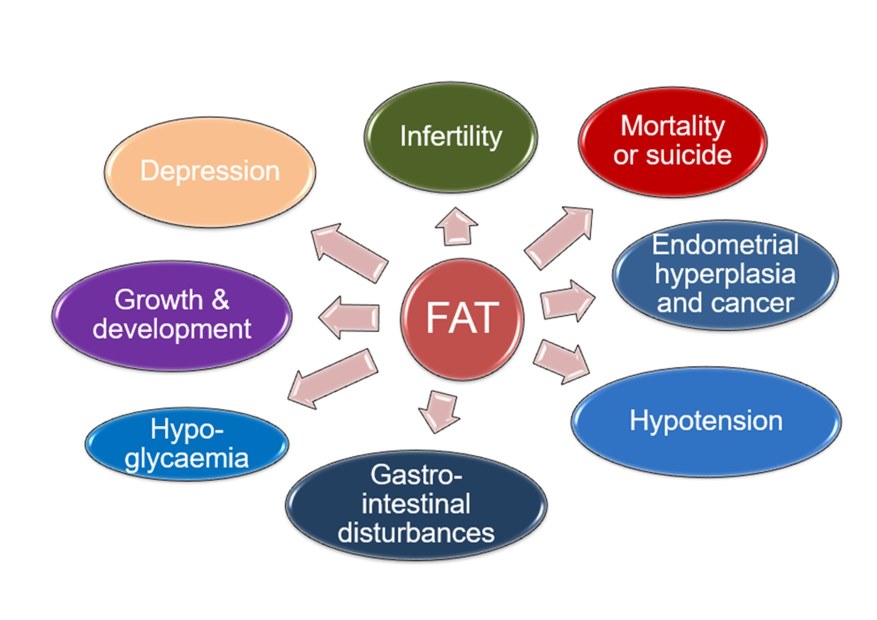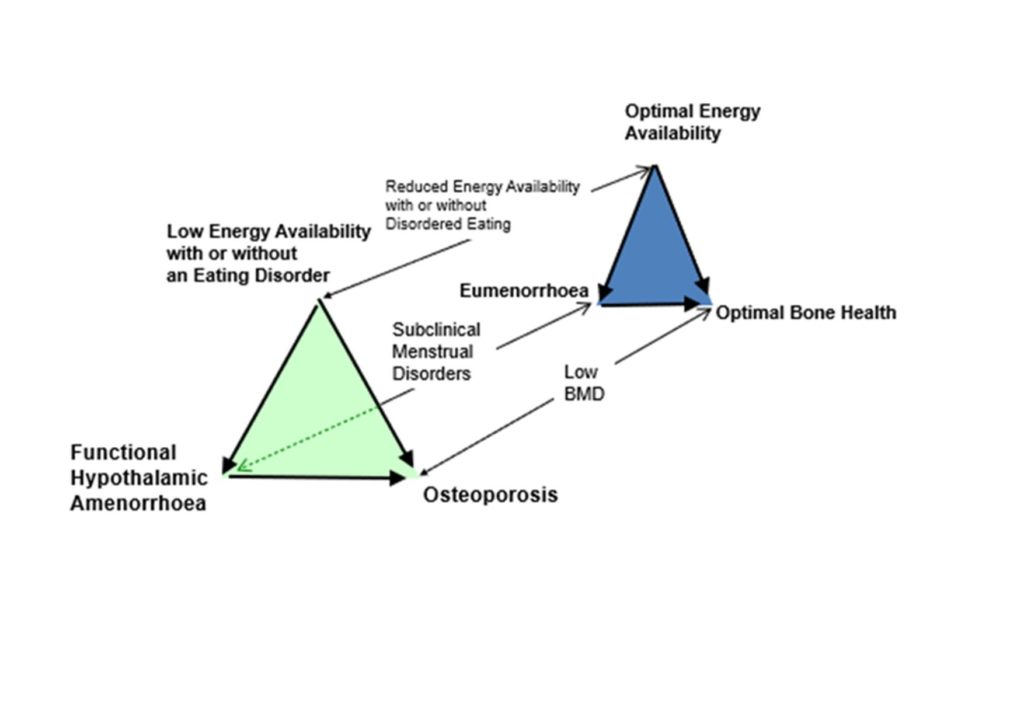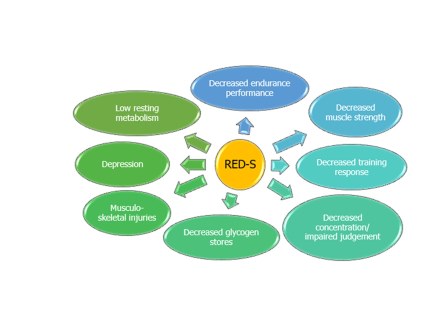Menstrual cycle
One of the first step in identifying hormonal-related effects on training and performance is to track each player’s menstrual cycle. Menstrual cycle can be monitored using tracking apps, such as FitrWoman, Flo, Clue or E-Wins project Menstrual Cycle Diary. An open discussion will be required on why the apps are to be used, whether information should be shared and then what the information will be used for.
Once the menstrual cycle has been tracked for three months, then consider implementing some changes to performance, training and monitoring:
- If using heart rate to monitor training intensity/training zones, then heart rate in the 2nd part of an individual’s cycle is going to be at least a few beats/min higher than it is in the 1st part of the cycle.
- Women sweat more and earlier when exercising in the 2nd part (the luteal phase) of their menstrual cycle, so make sure the footballer keeps hydrated at this time, especially in hot, humid conditions.
- Since endurance performance is likely to be better and blood lactate concentration is lower in the mid-luteal phase (2nd part) of the menstrual cycle, the footballer will be able to cope better, and feel better, in moderate intensity, long-duration training sessions and in full match play.

Menstrual cycle can be monitored using tracking apps, such as:
- In the late follicular phase, since strength and power performance are potentially slightly better, muscle growth with training is slightly greater, and there may be less DOMS (delayed onset of muscle soreness), schedule heavy resistance training at this time for those individuals.
- Since musculoskeletal injuries, especially ACL (anterior-cruciate ligament) injury, have been found to be greater in the late follicular phase, avoid twisting and turning drills in training at this footballer’s time.
- Be aware that in some footballers, negative symptoms of the menstrual cycle, such as period cramps, bloating, breast tenderness, heavy menstrual bleeding, headaches, and general feelings of fatigue, experienced during or before menses (menstrual bleeding) may mean that they miss training or are not motivated to train around this time.
Keep monitoring the above for each footballer to observe any effects.
To be a little more certain about knowing more precisely what phase of the menstrual cycle the footballer is in, then urine ovulation test strips could be used. These strips are used to detect the surge that occurs in luteinising hormone mid cycle. For a more thorough investigation, hormonal analysis can be completed using a postal service (e.g., Harmonix: https://mintdiagnostics.com/hormonix/).

The Female Athlete Triad/RED-S
Detecting low energy availability, which can be via purposeful eating disorders as well as inadvertent undereating, can ensure that symptoms associated with the Triad and RED-S do not occur.
Monitor signs and symptoms of energy deficiency, using
- Biological changes (e.g., reduced resting heart rate, lowered blood pressure or dizziness on standing, change in body composition (weight loss), low body composition or BMI of <18.5 kg/m2, overtraining, recurrent and non-healing injuries, stress fracture, menstrual status
- Psychological/ behavioural changes, e.g., body image dissatisfaction, depression, stress, low self-esteem, perfectionism
- Use of questionnaires, e.g., the Low Energy Availability in Females Questionnaire: http://www.diva-portal.org/smash/get/diva2:1303041/FULLTEXT02.pdf and scoring is http://www.diva-portal.org/smash/get/diva2:1303041/FULLTEXT03.pdf
If suspected, then the following treatment can be implemented:
- check that energy consumption is AT LEAST > 45 kcal/kg fat-free mass per day
- ensure that the athlete gains weight through nutritional therapy until BMI is >19 kg/ m2 and/or decreases their exercise load by 10%
- check adequate levels of Calcium and vitamin D in the diet
- provide a mental health intervention
- consider pharmacological intervention as a last resort


Education on menstrual cycle and hormone-based contraception
Gain knowledge about the menstrual cycle and hormone-based contraception from specialists in the field, e.g.,
• Pay someone to come and give a presentation or webinar
For younger girls, consider an educational resource, such as MoJo manuals: http://www.wsnet.co.uk/FOOTBALLMoJo
The manuals aim to help girls overcome issues they may face with competitive football (including body image, anxiety and amenorrhoea) and gently build confidence to tackle women-specific challenges in sport and life.
Talking and discussing

To encourage open, uninhibited conversations about the menstrual cycle and hormone- based contraception:
- Hire at least one member of staff as a woman (e.g., as coach, support staff, medic), so that footballers feel comfortable talking about their menstrual cycle and hormone- based contraception.
- Try to talk openly about menstrual cycle and hormone-based contraception, focussing on their importance, and the effects on performance and training. If not confident, then hire in an expert.
- Start conversations from a young age, so that it becomes normal as the player gets older.


